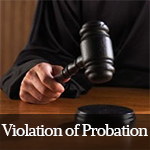Aggravated Battery v. Felony Battery

Aggravated Battery vs Felony Battery
Aggravated battery is always a felony, but felony battery is not always an aggravated battery. Simple battery can be charged as felony battery under certain circumstances.
Battery Basics
Criminal battery can be either a misdemeanor or a felony. So why would somebody get charged with misdemeanor battery as opposed to felony battery and vice versa? You will need to know some definitions and some statutes in order to make the determination. Those are all provided blow. However, this is how you will conduct the analysis: 1) is the battery simple or aggravated; 2) aggravated battery is always a felony; 3) if it is a simple battery, does the individual qualify for the felony enhancement due to his/her prior criminal record?; 4) if it is a simple battery, is the victim entitled to special protection by statute?
Battery Definition
Florida law separates the crime of battery into two categories. Simple battery is typically charged as a misdemeanor, but can be charged as a felony under certain circumstances. Aggravated battery is always charged as a felony.
Simple Battery Definition
Florida Statute 784.03 defines simple battery. The offense of battery occurs when a person:
Aggravated Battery Definition
Florida Statute 784.045 defines aggravated battery. A person commits aggravated battery who, in committing battery:
Felony Battery
Aggravated battery is always a felony. Aggravated battery is sometimes called “aggravated bat” or “agg bat” for short. Simple battery, as defined in Florida Statute 784.03, is typically charged as a misdemeanor, but can be charged as a felony. Simple battery can be charged as a felony if the defendant has a prior conviction for battery, aggravated battery or felony battery.
Simple battery can also be charged as a felony if the victim is in a certain class of individuals or the battery is particularly reprehensible. An example of a classification enhancement would be battery on a law enforcement officer a/k/a battery leo. An example of particularly reprehensible behavior would be throwing bodily fluids at a jail employee. Please note that enhancement, covered in Florida Statute 784.078, covers all employees and not just the guards.
Domestic Battery | Domestic Violence Cases
Domestic battery does not qualify for an automatic felony enhancement. Domestic battery is treated the same as any other battery although domestic cases are typically segregated into designated domestic violence courts for prosecution. All this means is that the potential consequences for a domestic battery are the same as if it were any other person. In reality, domestic battery, as well as all other domestic violence cases, are prosecuted much more harshly than other battery cases.
Felony Battery | Classifications
Simple battery can be charged as felony battery under certain circumstances. All of the circumstances are set forth in Florida Statutes Chapter 784 so I will not include a direct link to each statute, but rather the entire chapter.
Florida Statute 784.03 – a prior conviction for battery, aggravated battery or felony battery enhances a simple battery charge from a misdemeanor to a felony. It is important to note that a withheld adjudication counts as a prior conviction under this statute;
Florida Statute 784.07 – battery of law enforcement officers, firefighters, emergency medical care providers, public transit employees or agents, or other specified officers;
Florida Statute 784.074 – battery on sexually violent predators detention or commitment facility staff;
Florida Statute 784.075 – battery on detention or commitment facility staff or a juvenile probation officer;
Florida Statute 784.076 – battery on health services personnel;
Florida Statute 784.078 – battery of facility employee by throwing, tossing, or expelling certain fluids or materials;
Florida Statute 784.08 – battery on persons 65 years of age or older;
Florida Statute 784.081 – battery on specified officials or employees(sports officials and education officials);
Florida Statute 784.082 – battery by a person who is being detained in a prison, jail, or other detention facility upon visitor or other detainee;
Florida Statute 784.083 – battery on code inspectors;
Florida Statute 784.084 – battery of child by throwing, tossing, projecting, or expelling certain fluids or materials.
Ft. Lauderdale criminal attorney, Michael Dye, has extensive experience handling aggravated battery, felony battery and domestic battery cases through trial. For more information concerning aggravated battery and other battery charges, please contact us at:
The Law Offices of Michael A. Dye, PA, 1 East Broward Boulevard #700, Fort Lauderdale, FL 33301 (954)990-0525




